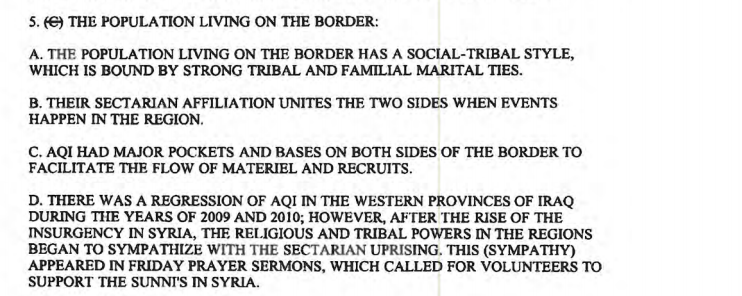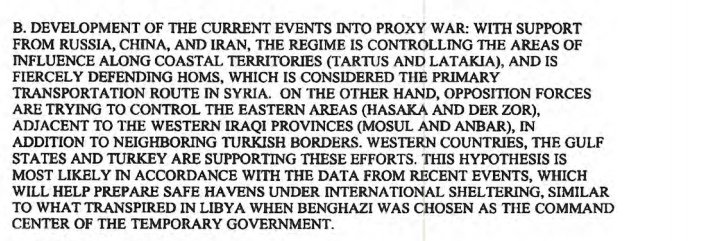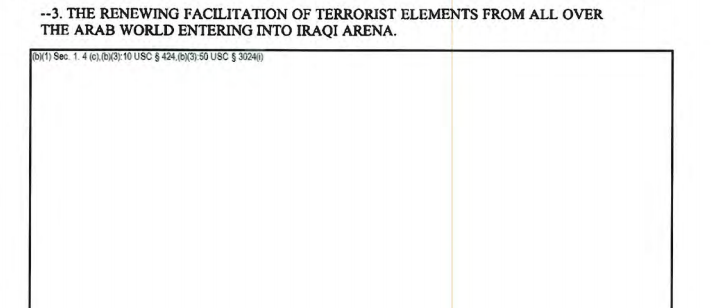Testing the waters
An interesting debate has developed over the past couple of years. This debate argues that we are moving from a unipolar world whereby America, the sole undisputed world superpower, are losing its dominance in various parts of the world. They argue that other nations with ambitions to compete on a global scale are now testing the waters and standing up to this cut-throat hegemonic power, that is the U.S.
"Will the coming world order be the American universal empire?... The coming world order will mark the last phase in a historical transition and cap the revolutionary epoch of this century. The mission of the American people is to bury the nation states, lead their beheaved [sic] peoples into larger unions, and overawe with its might the would-be saboteurs of the new order who have nothing to offer mankind but a putrefying ideology and brute force. It is likely that the accomplishment of this mission will exhaust the energies of America and that, then, the historical center of gravity will shift to another people. But this will matter little, for the opening of new horizons which we now faintly glimpse will usher in a new stage in human history... For the next 50 years or so, the future belongs to America." - U.S. Diplomat and Political Scientist Robert Strausz-Hupé (1957)This U.S. political scientist made an accurate estimate of how the power will slowly begin to wane for the Americans fifty years on from the 1950's which brings us where we are today, although we can safely say that the power has not shifted away from them yet.
What is a unipolar world?
Unipolarity is the distribution of power whereby one nation or state exercises its influence in a economic, cultural, militaristic and political way unattested by any other state. This type of independent influence is something mankind has never seen before. A state that has access to the entire globe through its tactical capability, economic dominance and cultural indoctrination has never existed in the realm of life to this scale. The Roman Empire, nor the Islamic State had ever reached this level of total domination across the entire globe in so many aspects of life. However, the age of conflicts that we see today are signs of declining influence through the decreasing rate of expansion, class conflicts within their own society, imperialist wars and irrationality.
The discussion of multipolarity has arisen in recent times, especially after the Middle East and North African uprisings. The 'vassals' of the American empire have begun to rebel and are increasingly formulating their own foreign policy. These 'vassals', such as those that have been incumbent upon IMF or other American imposed sanctions have turned to rival centres of power such as Moscow and Beijing for economic and political assistance. The U.S. National Intelligence Council in a report titled Global Trends 2025: A Transformed World professes that by 2025, "the international system will be a global multipolar one with gaps in national power."
Martin Jacques wrote in his work When China Rules the World: The End of the Western World and the Birth of a New Global Order that although China's global pre-eminence are economic, eventually China's political and cultural influence will be even greater and Mearsheimer in 2005 concurs that the "United States and China are likely to engage in an intense security competition with considerable potential for war." It can be noted that America's pivot to Asia, the Department of Defence announced plans to move 60% of its naval forces to the Pacific, which is by far one of its biggest military and strategic escalation after the Cold War. It is clear the American's are fighting a battle on many fronts, with the resurgence of the Islamic ideology being at the forefront, and astoundingly the intellectuals fail to identify it or write about it.
Buck-passing Policy of the U.S.
Mearsheimer (2001) mentions in his book titled The Tragedy of Great Power Politics that "buck-passing is a threatened great power's main alternative to balancing... to get another state to bear the burden of deterring or possibly fighting an aggressor while it remains on the sidelines". Which has been the policy for the U.S. Administration under Barrack Obama. It is a real sign of weakness of ones ideology, that it cannot express its culture freely without it causing internal problems for its own society. A state that is killing itself from within.
The Seven Stages of a Civilizations Rise and Fall
Carrol Quigley in 1961 published a book that studied the stages that all civilizations go through before its final decay and invasion. He concluded that there are seven stages, namely; mixture, gestation, expansion, age of conflicts, universal empire, decay and invasion. We can study where the American Empire currently stands in terms of these stages.
The second stage, called the "gestation" stage is, by definition, a period in which "nothing sensational happens, it is not an easy period to discern in the prehistoric evidence. If we assume that the first agriculturalists came into Mesopotamia about 6000 B.C., we might postulate a period of mixture for about a thousand years and a period of gestation about half as long." One can argue that during this period the society is growing and the relationships amongst them are becoming common, whether that be remnants from a previous culture or a brand new one. One can conclude this gestation period lasted at most 50-100 years but ended definitely before the 19th century.
The third stage being the Age of Expansion, and in this period "some of the most significant advances in human history were either made or adapted to large-scale. This is quite clearly the period America went through in the 19th century. The industrial production doubled and the economy grew rapidly. All due to the fact the Europeans economies were exhausted in World War I. The age of mass production had arrived allowing the Americans to make full effect of it sooner than others.
The fourth stage, namely the Age of Conflicts, has been defined by Quigley "as extending from the date when the rate of expansion begins to decline to the period when one political unit establishes a universal empire by conquering the entire area of the civilization. In the earlier part of this period the whole core of the civilization may be conquered by one or more preliminary empires." Quigley goes on to state certain characteristics of the Age of Conflicts to be "(1) decreasing rate of expansion, (2) imperialist wars, (3) class conflicts, and (4) irrationality." During this Age of Conflicts, which one can safely assume was between 1900 up until the 1980's at the end of the Cold War and the collapse of the Communist ideology. The class conflicts had caused many internal issues for America and its peoples but they would argue that this was a form of evolution, leading up to a more pure form of liberalism.
The fifth stage is the Universal Empire and as a result of the imperialist wars in the Age of Conflicts, the number of political units in the civilization is reduced to one. This can be seen at both a local level and a national level. Internal feuds and civil wars are quelled while other civilizations that are existent in the world are dominated.
When a universal empire is established in a civilization, the society enters upon a “golden age.” At least this is what it seems to the periods that follow it. Such a golden age is a period of peace and of relative prosperity. Peace arises from the absence of any competing political unity within the area of the civilization itself, and from the remoteness or even absence of struggles with other societies outside. Prosperity arises from the ending of internal belligerent destruction, the reduction of internal trade barriers, the establishment of a common system of weights, measures, and coinage, and from the extensive government spending associated with the establishment of a universal empire. But this appearance of prosperity is deceptive. Little real economic expansion is possible because no real instrument of expansion exists.
The golden age is really the glow of over ripeness, and soon
decline begins. When it becomes evident, we pass from Stage 5 of the Universal
Empire to Stage 6 of Decay. One finds it difficult to put a finger on when this golden age actually transpired for the Americans, but one could argue that the day George W. Bush announced the "Global World Order". However this Universal Empire we can quite clearly see is dwindling, is it entering the penultimate stage of decay?
The sixth stage as already mentioned is the Stage of Decay. Quigley's explanation of the Stage of Decay can explain the situation of America and its peoples clearly.
The Stage of Decay is a period of acute economic depression, declining standards of living, civil wars between the various vested interests, and growing illiteracy. The society grows weaker and weaker. Vain efforts are made to stop the wastage by legislation. But the decline continues. The religious, intellectual, social, and political levels of the society begin to lose the allegiance of the masses of the people on a large scale. New religious movements begin to sweep over the society. There is a growing reluctance to fight for the society or even to support it by paying taxes.
It is possible to break down these factors and apply them to America and the American people. In terms of the acute economic depression, America has suffered an astonishing 47 recessions since the 1790's, but if we are to look at all the recent recessions after the "Great Depression of 1929", they were all but a few due to economic policies or financial crises.
In terms of the declining standards of living, America was turning towards a "knowledge society", meaning that it wished to pursue a 'post-industrial' society that instead of capital investment in productive activity in plant and equipment, its main feature was the creation of a "knowledge society," with a focus on technical dynamics and menial industrial labour was better suited to developing countries. However the truth of the matter is the vast majority of Americans have worked harder and longer hours. Wal-Mart, America's largest employer, pays less than a third of the level of wages and benefits auto-workers received. Also, under 'Obamacare' the health care in America has suffered a great deal which further proves the decline in the standards of living.
In terms of illiteracy in the United States, a recent study conducted in April 2015 by the U.S. Department of Education and the National Institute of Literacy states that 32 million adults in the U.S. cannot read, and that is 14% of the population. It goes on to state that the illiteracy levels have not improved for the last ten years, showcasing that illiteracy is not improving. One can state that if the people of America are not progressing, they are declining.
The final stage of the rise and fall of a civilization is the Stage of Invasion which we can safely say has not occurred up until now.
The most important point that many authors, political scientists and politicians fail to mention is that the Islamic revival of the Muslims in the world today, do not have a state mechanism, yet they provide the biggest challenge for all the actors in the world today. It is not de-industrialisation that causes a civilization to dwindle and die but rather it is the idea of those people that must be destroyed. The Islamic Empire was abolished in 1924 however the ideology remained in the hearts of the 200 million that lived in the world at the time and to this very day. These authors and political scientists write books upon books of the swaying influence, and how India or China or Germany will take the reign as the global superpower, yet these nations they state are struggling against the rise of Islam. It is either naivety or academic ignorance or outright propaganda that they fail to point the finger on the Muslims to be the next civilization that will unseat the rest of them. The only civilization that does not fit into the seven stages is the Islamic civilization that has remained since the demise of its state mechanism.
However I leave it to the reader to decide whether the American civilization has either cemented itself firmly to survive for many more decades or whether they are fighting a losing battle.
Written by Kam Kashem







